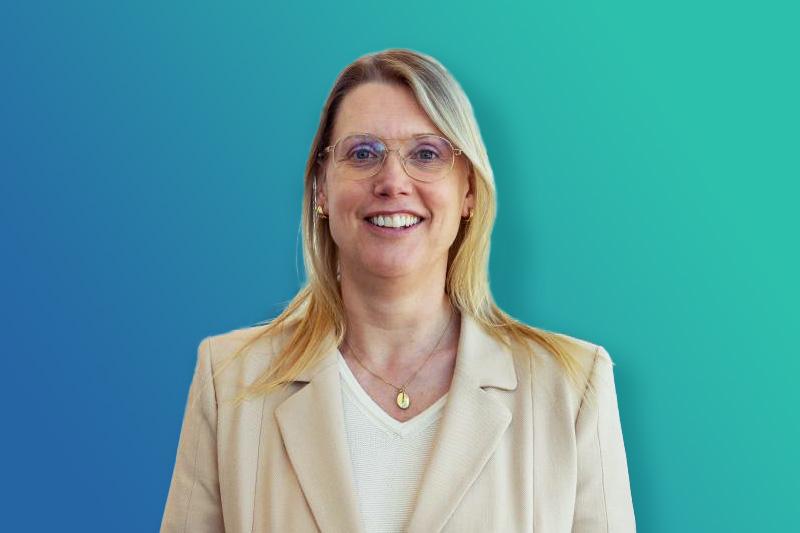
Petra Hielkema has been the Chairperson of the European Insurance and Occupational Pensions Authority (EIOPA) since September 2021. She talks to us about what has changed since taking up her position, digitalisation, and what EIOPA’s priorities will be in the new policy cycle.
You've been in your role now for almost three years.
How's it going? What has changed since you took up your position?
It's going well – and I very much enjoy working at the European level, with so many European colleagues. When you are in a multicultural environment you don’t just learn a lot about other cultures, but you also reflect on your own culture. It’s rewarding to see that if you remain steady and on course, and make the changes that are necessary, then you can really have an impact at EU level.
What has changed since I took up my position? I was a member of the board for a long time, so when I started, I think I brought a Member‑State perspective, a more national perspective. What has really changed is that my perspective has become more European. I can easily adopt a national perspective and explain for instance why it’s important to do something in a certain way for a specific market, because I know it fits that market. But I can increasingly see that if we take a European approach, we actually might be more efficient and competitive.
Finally, one thing I think I really bring is attention to diversity in all its forms – including within my organisation. I think that ensuring diversity at all levels really brings the best results – not just in my office, but more widely in the world of insurance and pensions, and in the products that are being offered to society.
Digitalisation is also one of EIOPA’s strategic priorities.
What is on the agenda here?
A key topic on the agenda for insurers is Artificial Intelligence (AI), and now also of course generative AI. That is because for decades – for centuries even – insurers have been working with data. This is fundamental to their role. They collect a lot of data on risks and pool that data and then set a price on it. And in this way, you share the risk with the pool, and this makes it affordable for a larger number of people. AI, and big data, are gathering more and more data and analysing them to assess and price the risk – that is the opportunity in insurance. Now that clearly comes with a risk, and that is where we come in. Because this should always be done in a fair way and should not be discriminatory. For example, it should not lead to an insurer setting a price higher for a group of clients because the data show that these clients are less likely to leave or cancel their policy if you raise the price. That's not fair because their price has nothing to do with the risk that you are insuring. But if you set a price on a genuine risk – for instance if someone lives in an area near a river where there's a high risk of flooding – and an insurer puts the price up, that is a fair decision. However, if they only put the price up for those that are statistically not so likely to leave, then we would not allow that. That is what we call price discrimination.
Following the European elections, as we look ahead to the new policy cycle, what are the priority areas for EIOPA?
First of all, pensions – that’s an area where we really need to make some progress. And there is a momentum for this, which has been created by the increased focus on capital markets union (CMU), which is about tackling the fragmentation of our capital markets and bringing more private savings to them. Here we can look at retail investments, such as insurance and pension products. Channelling more savings from bank accounts to these investment products will raise more capital and it’s this angle that creates a political interest in people saving more for their pensions in these products. It’s excellent that this issue is getting some more attention because the pension gap is something that we really need to work on.
Priority two is the sustainability agenda, even if there is a lot of political debate around the issue, what is really key is that there are risks out there for consumers, and they will increase because of climate change. So, we need to work on the protection gap for insurance. But also, are insurers and pension funds ready for an impact on the value of their assets due to climate change? That also remains an important issue.
One important point to make is that at the core, the industry always has to be robust. Now we have solvency ratios of over 200%, but we have a new directive coming – because the Solvency II Directive was reviewed – and there is an easing of capital requirements. That means there will be slightly less capital available for shocks at a time when geopolitical risks are tremendous, and macroeconomic risks are also still there. So, we will continue to monitor the markets, and make sure insurers are sufficiently robust to be able to deal with any shocks that might be coming.
Related links
European Insurance and Occupational Pensions Authority (EIOPA)
Details
- Publication date
- 22 July 2024
- Author
- Directorate-General for Financial Stability, Financial Services and Capital Markets Union
